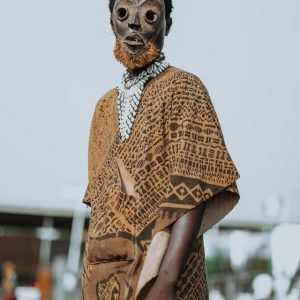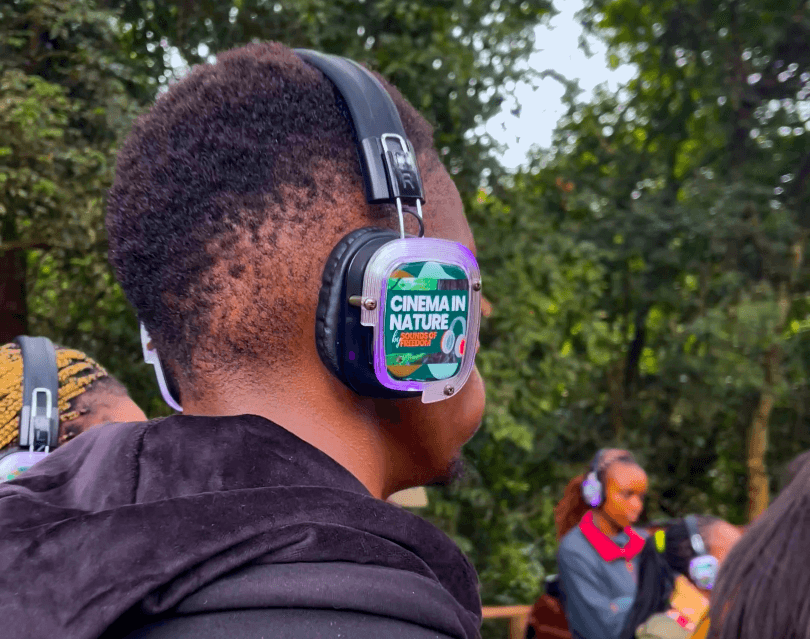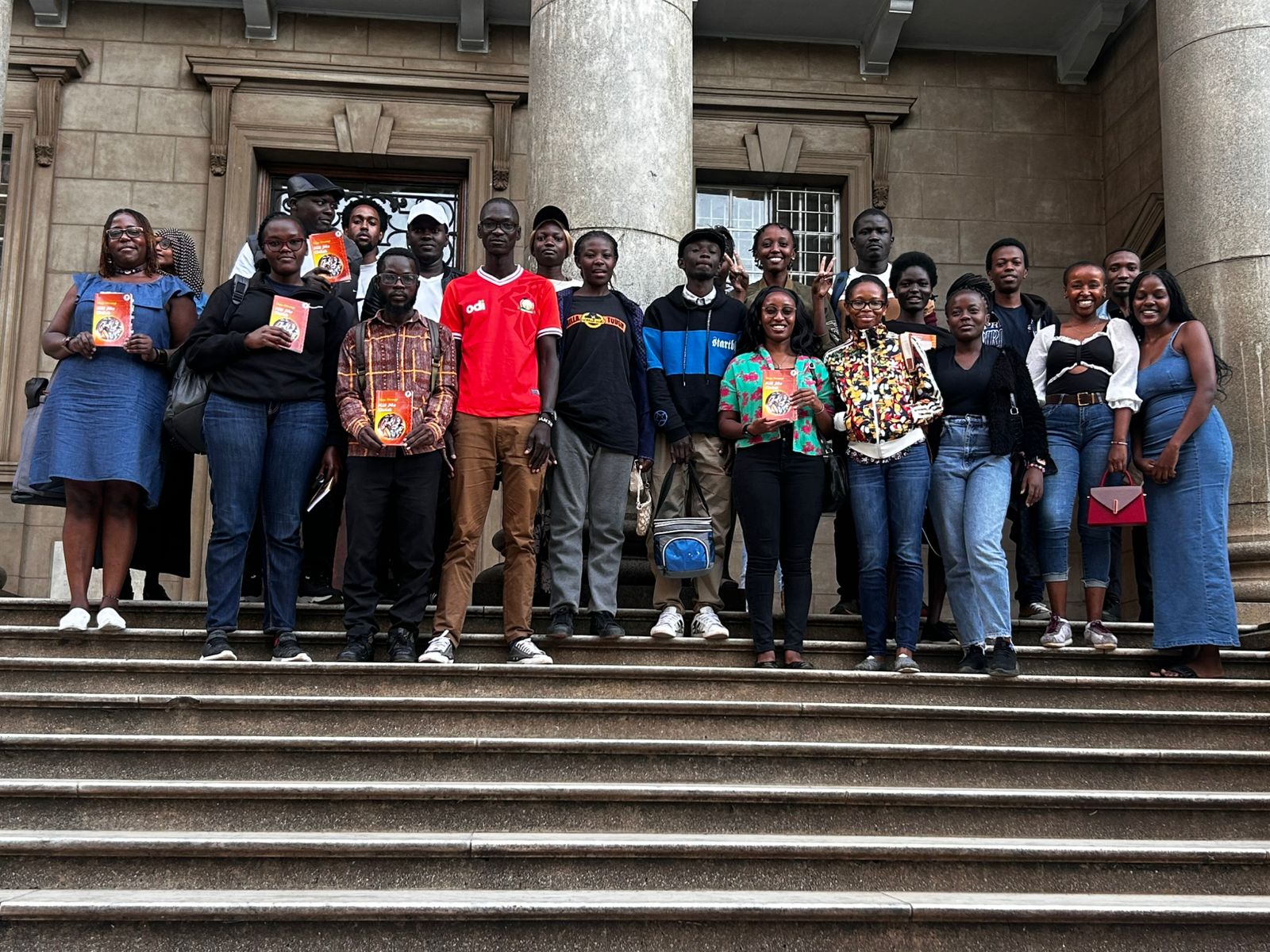[bctt tweet="African oral literature is not imaginative, as scholarly consensus asserts. All tales are based on events codified in mythology to preserve the message." username="QaziniKenya"]
The Lemba are not the only ones. Africa has many tribes that claim to share a heritage with the Jews of Israel. You will find them in Morocco, Ethiopia, Congo, Zimbabwe, and even West Africa. But with diverse origins in various periods of history, the full story of Jewish presence in Africa is hard to verify.
The Lemba people of Zimbabwe are one in a small list of accepted African Jews. A community numbering about 50,000 in 1980, the Lemba has historically practised a variant of the Jewish religion.
Ancestral descent
What makes The Lemba so special as an African tribe is that, due to international attention, their genetics have been studied extensively. The results seem to validate the Lemba myths of their origins, which is quite remarkable, considering that the Lemba have an intercontinental origin story.
According to Lemba myths of origin, their ancestors came from Judea in ancient times. Before arriving in Africa, they stopped over at Senna, which is in Yemen.
The third part of the Lemba’s into-Africa movement took them from Arabia to Ethiopia, where they had an even lengthier stopover.
Eventually, the Lemba community in Ethiopia split up. One group moved south along the Indian Ocean coast, establishing the present-day Lemba community which lives in Zimbambwe.
In this whole adventure, so The Lemba believes, their ancestors had been in search of African gold. It is no wonder, therefore, that they live not too far from King Solomon’s Mines in Zimbabwe.
The genetic evidence
The Lemba people were lucky to encounter a soft European into their lands. Their claims of Jewish descent were taken seriously enough for studies to commence.
Today, the reason why the Lemba people stand out so much from the rest is that there is genetic data to verify their claims.
For example, the Lemba people bear genetic similarities with the people who occupy present-day Sena in Yemen. Moreover, genetic links occur only on the male line.
This corresponds with the historical accounts of the Lemba as smiths and miners who came to Africa to prospect for gold.
Even though the Lemba are classified as a Bantu people, 50% have been found to have Semitic roots.
And even though this does not qualify them as Jews, it gives the Lemba an undeniably Arabic/Jewish ancestry.
The Ngoma Lungundu
Looking at it today, you wouldn’t think much of the Lemba Ark of the Covenant or Ngoma Lungundu. It is much smaller and simpler compared to the images of the Ark of the Covenant from the bible.
However, tests have confirmed that the wood from the Ngoma Lungundu is more than 700 years old. The Lemba have said that they rebuilt the Ark from the remains of an older version after the old exploded 700 years ago.
Meaning “the drum that thunders” in Lemba, the Ngoma Lungundu is intricately weaved into Lemba mythology. However, the Lemba Ark does not carry the strict religious functionality of the biblical Ark of the Covenant.
Professor Parfitt – the real-life Indiana Jones who discovered Ngoma Lungundu – describes a curious feature of the Lemba Ark. The bottom of this idolized artefact has been burned black by fire powder, suggesting that it might have been used as cannon.
Interestingly, The Lemba are not the only African claimants to the Ark of the Covenant. The Ethiopian Orthodox Tawahedo Church claims to hold the actual Ark; they just won’t show it to anyone.
I recently discovered an unexpected Agikuyu claim over the Ark. According to a mysterious council of elders known as The 12 Seers, the Ark was left in Mt. Kenya (Ta Neteru) by retreating Kabiru priests of Ethiopian nativity.
A new etymology for Mount Kenya?
History tells us that the Agikuyu used to call the mount “Kirima kiri Mara”, which is today interpreted to mean “The Mount with Snow”.
But what if the word “Mara” was miscommunicated or misunderstood? What if the actual word meant was “Amhara”? The Amhara are a historically dominant group in the coalition of tribes that make up present-day Ethiopia.
In the mid-19th century, the influence of the Ethiopian Empire stretched through the Kenyan Highlands. Agikuyu isolation, as is popularly touted in history books, only started after the fall of Ethiopia.
The retreating Ethiopian forces could easily have left behind a small force of Amhara warriors to look after the Ark hastily buried in Mt. Kenya.
Pending archaeological study, however, the Agikuyu account of their involvement with the Ark will remain as just that –stories.
Geomythology
The Lemba people and their eclectic stories were once ridiculed by the scholarly community for being ridiculous. That is, until rigorous academic study revealed the truth behind these stories.
Many African tribes are like that today. Our folk stories were dismissed during the colonization period as a matter of course. However, since gaining independence, we now have a great opportunity to go back to celebrating our heritage.
Keeping the fire burning
When I was a little boy, there was nothing I loved more than a good story before supper. The magic of an oral story is that it transports you to a different time and place full of adventure, danger, and bravery.
And behind the words, a coded message that leaves you thinking about the story for many days thereafter.
I recently had the opportunity to engage in this age-old custom of my people. My nieces and nephew are now of story-telling age and they are voracious at it.
The story of the hare and the elephant king was one of my favourites as a child. So you can imagine my pleasure when my nephew chose it for our night of storytelling.
It struck me that there was only a miniscule difference between the version I’d heard in Kuresoi and the one told in Nyahururu where my nephew and nieces had gotten them.
African oral literature is not imaginative, as many scholars assert. All tales are based on events codified in mythology to preserve the message.
The Lemba, because they have historically received a lot more scholarly attention, have had their myths verified. As we extend the same courtesy to other African tribes, we can expect to see the same situation replayed over and over and over again.





